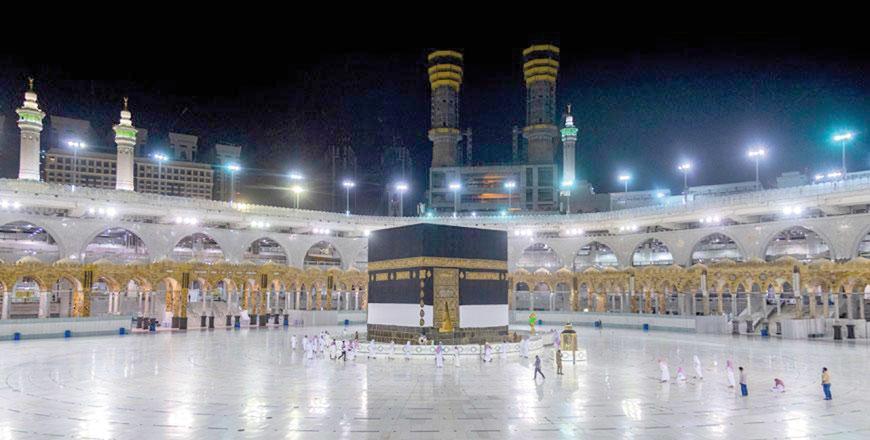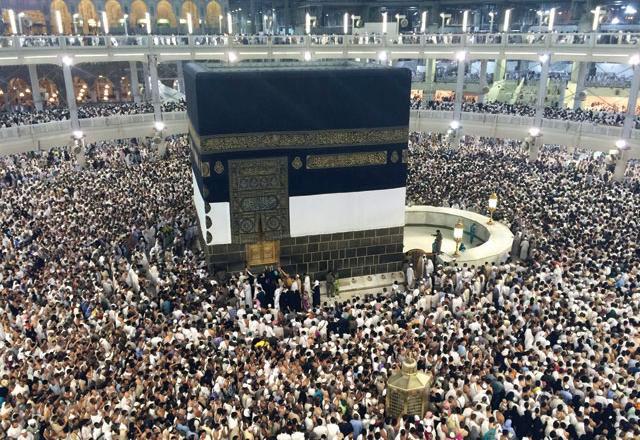You are here
Travel agents see rise in number of umra pilgrims
By Rayya Al Muheisen - Feb 28,2023 - Last updated at Feb 28,2023

This handout photo provided by the Saudi Ministry of Media shows a few pilgrims circumambulating the Kaaba, Islam's holiest shrine, at the Grand Mosque in the Saudi holy city of Mecca, on July 26, 2020 (AFP photo)
AMMAN — The number of umra pilgrims is on the rise and is expected to further increase during Ramadan, according to travel agents.
Umra (the lesser Muslim pilgrimage to Mecca) can be performed at any point in the year. The practice is highly recommended within the faith for individuals who are physically and financially capable.
The most popular times for umra are the days before, during and after the Hajj (the greater Muslim pilgrimage to Mecca), which occurs during Sha’ban, a holy month in the Islamic Calendar that precedes Ramadan. The last 10 days of Ramadan, which is the fasting month for Muslims, are also popular times for umra.
An official at the Jordan Society for Travel and Tourism Agents told The Jordan Times that since the beginning of umra season, over 100,000 Jordanians have performed the practice.
The majority of Jordanian pilgrims travel to Mecca through land crossings, the source added.
Um Faris, a 57-year-old Jordanian who performed umra last week, told The Jordan Times that umra is “a spiritual journey that purifies the body, heart, soul and mind from past sins”.
“It takes a couple of hours to perform umra,” Um Faris added.
Um Faris believes that the increase in Jordanians performing umra can be attributed to the “good deals” offered by travel agents, in addition to the lifting of COVID-19 restrictions.
People also want to take advantage of the holy days of Sha’ban and perform umra, Um Faris said.
Meanwhile, Abu Yousef, a tailor located downtown Amman, told The Jordan Times that demand for men’s pilgrimage fabric is “extremely” high.
“Umra and Hajj clothing for men includes a special white garment that consists of two seamless toweling fabrics or sheets,” Abu Yousef said.
Abu Yousef added that in Islam, men can not wear sewn clothes during umra.
Performing the pilgrimage in simple clothes made from a seamless, unified piece of fabric symbolises the unity of Muslims, according to Abu Yousef, who added that the uniformity and the simplicity of the clothing worn for umra minimises the visible differences between all Muslims.
Related Articles
AMMAN — The Ministry of Awqaf and Islamic Affairs has welcomed Saudi Arabia’s restructuring of umra visa fees for repeat pilgrims, expecting
AMMAN — Talks between the Saudi embassy in Amman and the Jordan Society of Tourism and Travel Agents (JSTA) reached fruition on Monday as th
The Saudi embassy in Amman on Monday said the decision to adopt the biometrics system for Jordanians wishing to perform umra or Hajj (the lesser and greater Muslim pilgrimages to Mecca) is irreversible.
















